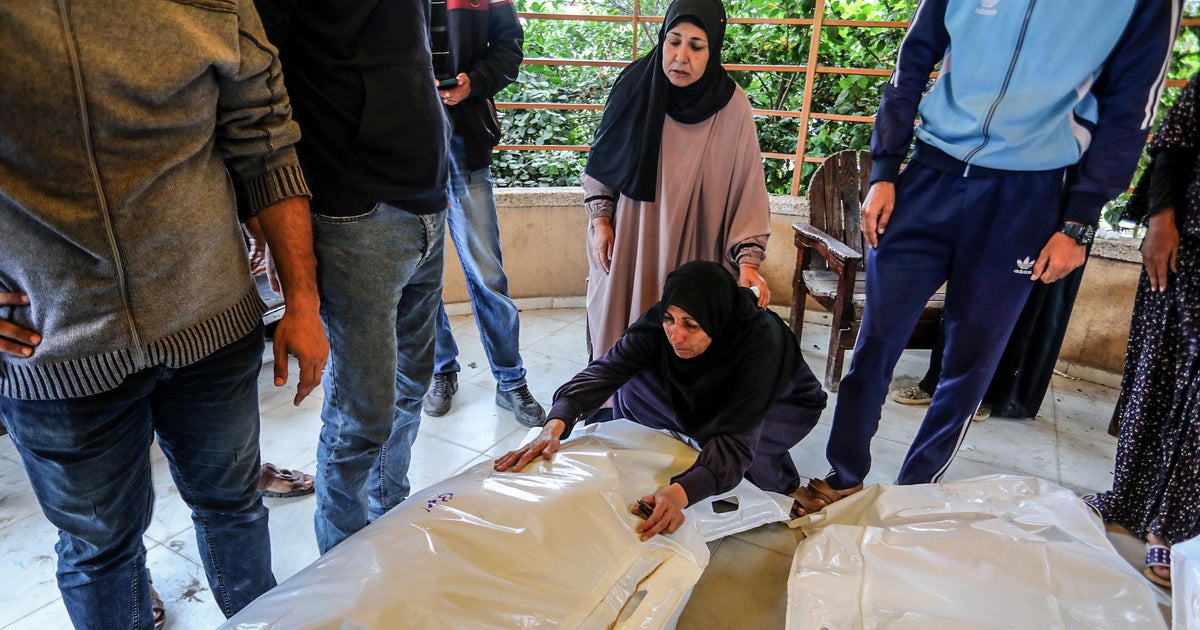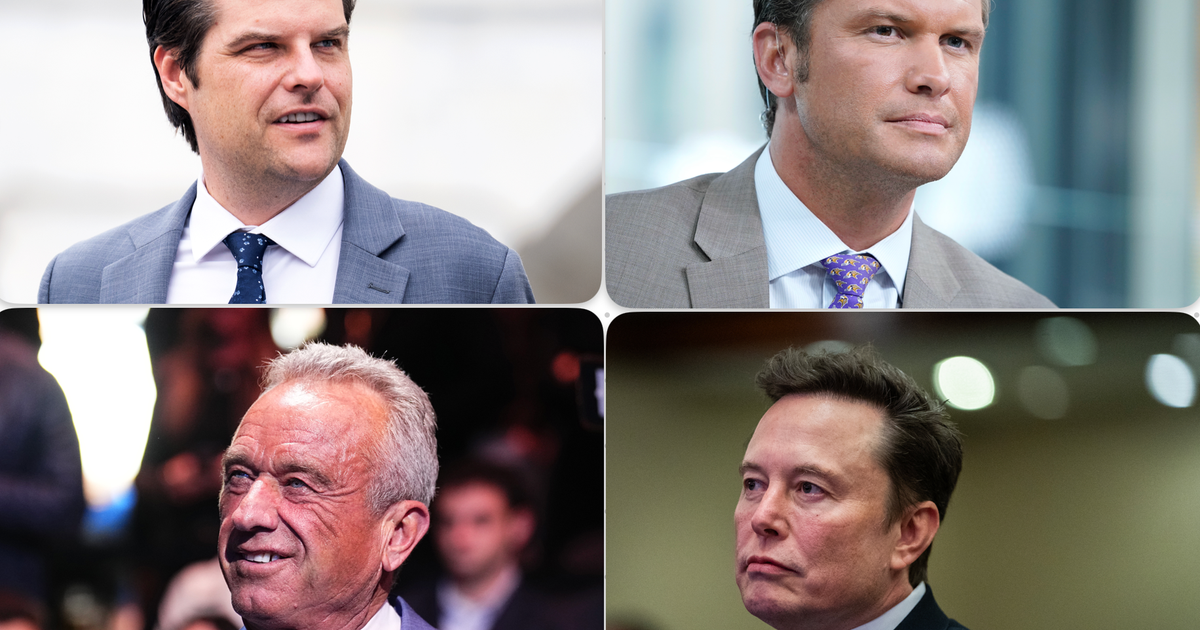Former aide H.R. McMaster on how Trump enjoys "pitting people against each other"
Lt. Gen. H.R. McMaster had been a soldier for three decades when Donald Trump named him his national security adviser just one month into his administration. "Lots of people told me not to do it," McMaster said. "People were calling me up who really detested President Trump and saying, 'You can't do it, it'll sulley your reputation.'"
Thirteen months later, Trump fired him.
"I got used up essentially in the service of Donald Trump," McMaster said. "I was at peace with that. And I was not going to try to keep my job by telling the president what he wanted to hear."
Now, in a book titled "At War With Ourselves: My Tour of Duty in the Trump White House," McMaster (a CBS News contributor) describes a White House where "everything ... was much harder than it needed to be."
"None of the friction that I encountered in the White House was completely unprecedented, but it was next level," he said. "It went to 11! Everything was cranked up to a higher level."
His first real business meeting with Trump was a presidential daily brief, an intelligence briefing that all presidents get. McMaster said, "I have a distinct impression of that meeting of being really not very effective for the president. President Trump plays to an audience, and it was too big of an audience in the Oval Office."
Martin asked, "And would the audience play to him?"
"The audience would play to him. I describe the environment as an environment of competitive sycophancy," McMaster replied.
"Did he want advice, or did he want flattery?"
"The president wanted advice; he also wanted flattery. He really likes the adulation. In many ways he's kind of addicted to adulation from his political base, from people around him."
McMaster was happy to serve and eager to reverse what he considered President Obama's "weak-kneed" foreign policy. He said, "I saw actually so many of our policies as in need of disruption. I was grateful for [Trump's] disruptive nature. I saw it as my job to try to help him disrupt what needed to be disrupted."
At his first NATO Summit, Trump took disruption to a whole new level. Unhappy some members were not spending enough on defense, he made some last-minute changes to his speech. According to McMaster, Trump added, "If countries don't pay their dues, then we're not going to defend that particular country."
McMaster found out just as they were departing for NATO headquarters. As Trump's limousine pulled up, there was an awkward delay while a frantic intervention took place in the back seat. "I convinced a reluctant Secretary of State Tillerson and Secretary of Defense Mattis to get in the Beast, the President's armored car, with me to talk him out of that," McMaster explained.
It was one of the few times the three of them agreed on something.
McMaster described his relations with Tillerson and Mattis as less than harmonious: "They were difficult at times. They regarded the president as a danger to U.S. interests, a danger to some of our relationships internationally."
Martin asked, "The Secretary of State and the Secretary of Defense viewed the President of the United States as dangerous?"
"Yes," McMaster replied. "He was dangerous in particular to what they thought an effective foreign policy should be."
McMaster never considered Trump "dangerous," but the president's affinity for autocrats made him uneasy. "President Trump sees in authoritarian leaders the qualities that he wants other people to see in him," he said.
In particular Russian President Vladamir Putin, whom McMaster said would appeal to Trump's "desire for flattery. He would appeal to the president's skepticism about long-term military commitments abroad."
"Could Putin play Trump?" Martin asked.
"He knew really what Trump's predilections were," McMaster said. "One of my roles was to alert him to that – to say, 'Mr. President, you know, this guy is the best liar in the world.'"
- Trump sides with Putin over U.S. intelligence during remarkable press conference in Helsinki ("CBS Evening News")
But when it came to listening to his own advisers, McMaster writes, Trump could be "reflexively contrarian."
"Oh my gosh, if you bring the president a course of action and say, 'Everybody agrees, whatever you do, don't do this thing,' he's going to do it just to spite everybody," he said.
With Venezuela's anti-American regime cracking down on protesters, Trump walked out to meet the press with McMaster, U.N. Ambassador Nikki Haley and Secretary of State Rex Tillerson. "Rex Tillerson says to him, 'Hey, Mr. President, whatever you do, don't say that we're planning any military options for Venezuela," McMaster recalled.
Trump told the press, "We have many options for Venezuela, and, by the way, I'm not going to rule out a military option."
Tillerson lasted just over a year before he was fired.
Martin asked, "Why do so many of the senior people who work for Donald Trump end up being either fired, or quitting?"
"You get used up in that environment," McMaster replied. "President Trump does enjoy kind of pitting people against each other, you know? That creates a lot of angst in people."
"Was he just plain nasty?"
"At times he could be nasty," said McMaster, "especially when he's tired, especially when he's grumpy, especially when he feels beleaguered. There were a couple times where, you know, nobody wanted to be around him, you know? And I'm, like, the last guy. I mean, I have to be with him, right? I would get in the car and he would just unload on me."
The end came after a Trump phone call with Turkey's President Erdoğan, which got off to a bad start when McMaster tried to prep him.
Martin asked, "What did he have against preparation?"
"Well, he found it to be tedious," McMaster replied. "And he had great confidence in his own instincts, right? So, like, Why am I prepping for this?"
McMaster decided to quit, but Trump fired him first, and at a private farewell ceremony told his family, "Make sure he only writes nice things about me."
The Trump campaign did not respond to requests from "CBS Sunday Morning" for comment about McMaster's book.
McMaster retreated to the ivory tower of the Hoover Institution at Stanford University, where he writes and teaches, and where he watched the events of January 6th. Trump, he said, "encouraged an attack, you know, on the first branch of government, and an attack on the peaceful transition of power, and I think that that was an abandonment of his responsibilities to the Constitution."
Martin asked, "Is he fit to hold office?"
"That's the judgment that the American people have to make; I don't want to tell people how to vote," McMaster replied.
"Will he be getting your vote?"
"I'm not gonna ever tell anybody my vote," he said.
But he will tell you what he experienced in the first Trump administration – and what that might mean for a second.
"History doesn't repeat itself, but it does rhyme," McMaster said. "I think it does, you know, foreshadow what we might expect in a second Trump administration as well."
For more info:
- "At War With Ourselves: My Tour of Duty in the Trump White House" by H.R. McMaster (HarperCollins), in Hardcover, Large Print, eBook and Audio formats, available August 27 via Amazon, Barnes & Noble and Bookshop.org
- H.R. McMaster, Fouad and Michelle Ajami Senior Fellow, Hoover Institution
Story produced by Mary Walsh. Editor: Emanuele Secci.







